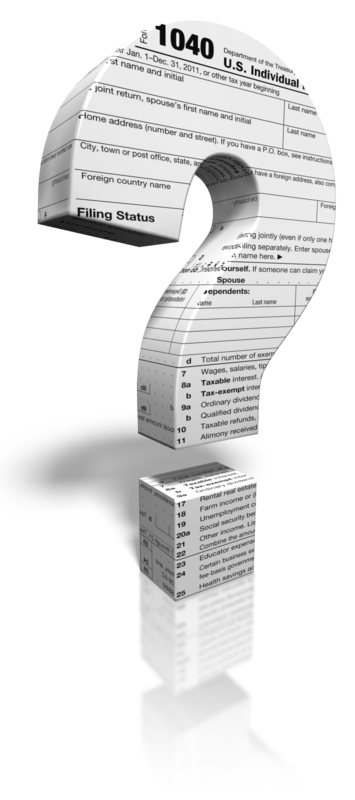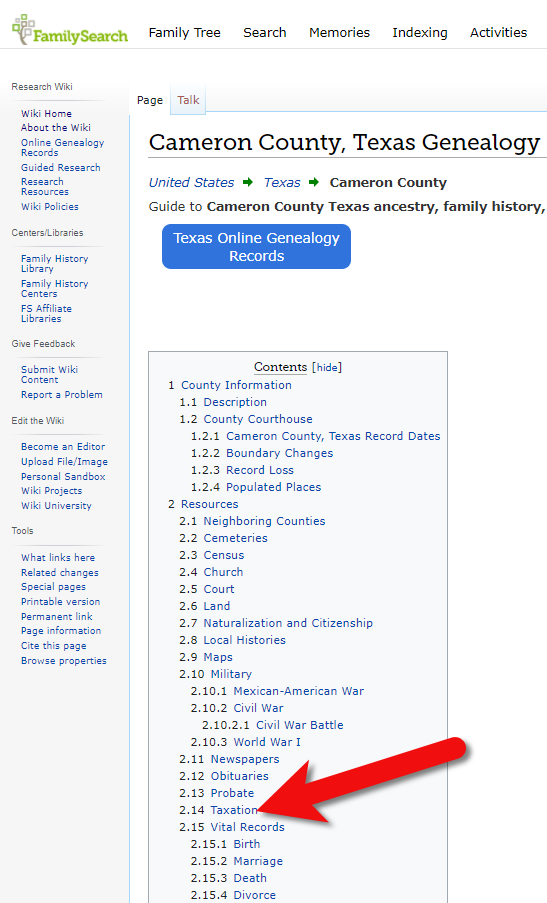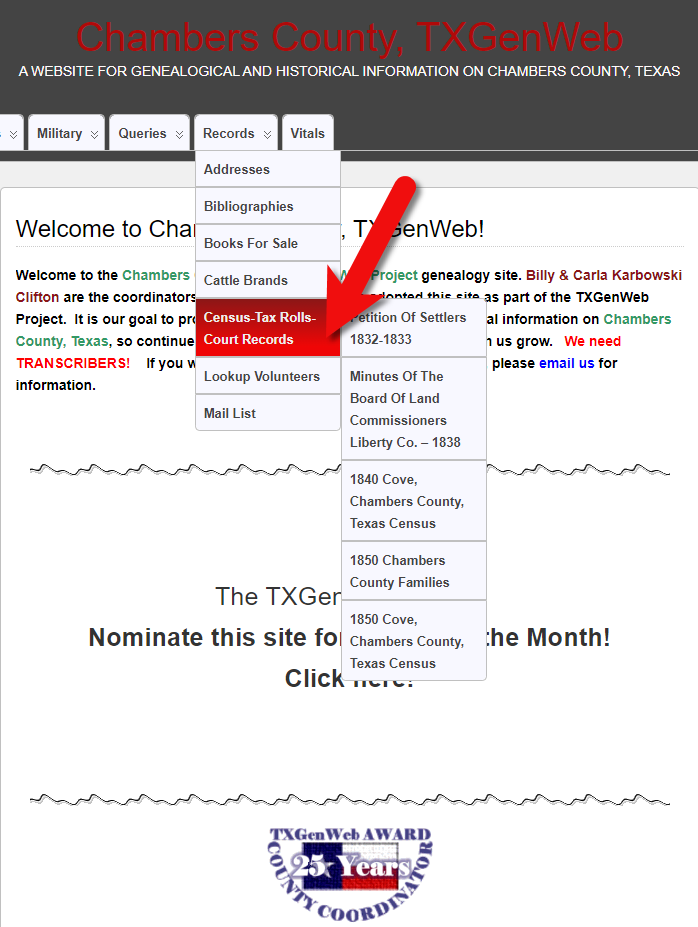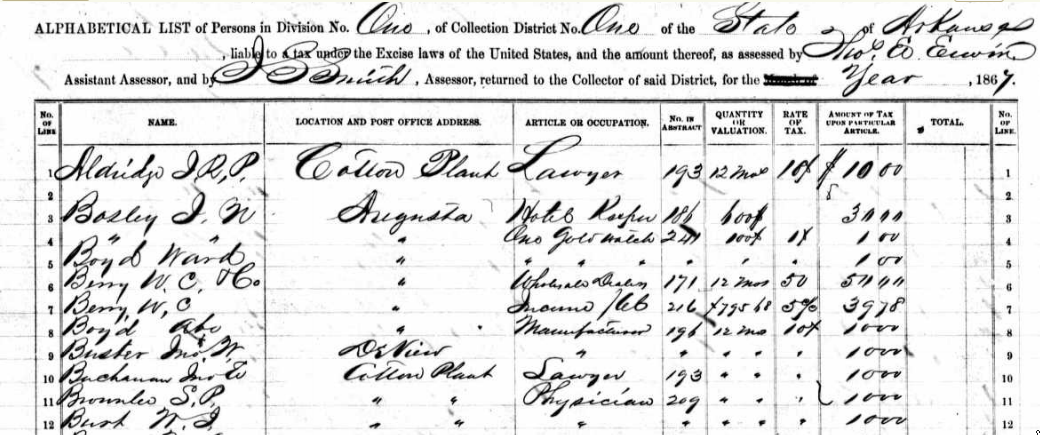Genealogy Tips: Find Ancestors in Tax Records
It’s time to pay taxes in the United States!  Is it any consolation that our ancestors paid them, too? Here’s a brief history of U.S. federal taxation and tips on where to find tax records for the U.S. and the U.K.
Is it any consolation that our ancestors paid them, too? Here’s a brief history of U.S. federal taxation and tips on where to find tax records for the U.S. and the U.K.
History of Tax Records
According to the National Archives (U.S.), the Civil War prompted the first national income tax, a flat 3% on incomes over $800. (See an image of the 16th Amendment and the first 1040 form here.)
The Supreme Court halted a later attempt by Congress to levy another income tax, saying it was unconstitutional.
In 1913 the 16th Amendment granted that power. Even then, only 1% of the population paid income taxes because most folks met the exemptions and deductions. Tax rates varied from 1% to 6%–wouldn’t we love to see those rates now!
Where to Find Tax Records
Ancestry.com has indexed images of U.S. federal tax assessment lists from the Civil War period (and beyond, for some territories).
Here’s a sample image from Arkansas:
Of course, the U.S. federal income tax is just one type. Taxes have been levied on real estate, personal property and income by local, regional and national governments throughout the world.
Some tax records can be found online at the largest genealogy websites.
Here are examples of tax records that can be found at Ancestry:
- tax records from London (1692-1932);
- the U.S. states of Pennsylvania, Tennessee, New York, Ohio, Georgia and Texas;
- and many from Scotland, Ireland, Canada and Russia (there’s more: see a full list and descriptions here).
FamilySearch.org hosts over a million records each of U.S. state tax records from Ohio and Texas.
FindMyPast hosts a wealth of U.K. tax records, from local rate books to Cheshire land taxes and even the Northamptonshire Hearth Tax of 1674.
In addition to genealogy websites, here in the U.S., look for original real estate and personal property taxpayer lists in county courthouses or state archives.
It’s also a good idea to consult genealogical or historical organizations and guides. A Google search for “tax records genealogy Virginia” brings up great results from the Library of Virginia and Binns Genealogy. And here’s a search tip: Use the keyword “genealogy” so historical records will pop up. Without that term, you’re going to get results that talk about paying taxes today.
If you still haven’t found the tax records you are looking for, there are two more excellent resources available for finding out what else might be available within a particular jurisdiction.
The first is the FamilySearch Wiki. From the home page you can drill down using the map, or try a search in the search box. Search for the jurisdiction and the keyword tax. Click through to the page for that jurisdiction. Typically you will find a table of contents that includes links to the section of the page covering various topics. Look for a link to tax, taxes, tax records, or taxation. They will list known sources for tax records in that area.

Tax records at the familysearch wiki
The second resource for finding out what else might be available is the free USGenWeb site. Like the FamilySearch Wiki, it’s organized by location / jurisdiction. Drill down to the place and then look for the section listing the known records for that area and look for tax related links.

Find information about tax records at USGenWeb
Why It’s Worth Finding Tax Records
I’ll leave you with this tantalizing list of data gathered in the Calhoun County, Georgia tax list of 1873. It enumerates whites, children, the blind/deaf/dumb, dentists, auctioneers, and those who have ten-pin alleys, pool tables and skating rinks. Then, real estate is assessed in detail. Finally, each person’s amount of money, investments, merchandise, household furniture, and investment in manufacturing is assessed.
As you can see, it can pay you big to invest time in looking for your ancestor’s tax records! Just make sure that if you’re here in the U.S., you’ve got your own taxes out of the way before you go searching for someone else’s.
We Dig These Gems! New Genealogy Records Online
 Every Friday, we highlight new genealogy records online. Scan these posts for content that may include your ancestors. Use these records to inspire your search for similar records elsewhere. Always check our Google tips at the end of each list: they are custom-crafted each week to give YOU one more tool in your genealogy toolbox.
Every Friday, we highlight new genealogy records online. Scan these posts for content that may include your ancestors. Use these records to inspire your search for similar records elsewhere. Always check our Google tips at the end of each list: they are custom-crafted each week to give YOU one more tool in your genealogy toolbox.
This week:
ALABAMA COUNTY MARRIAGES. Over 700,000 names have been added to FamilySearch’s index of Alabama county marriage records (1809-1950). Some of the index entries have images.
ENGLAND PARISH RECORDS. Indexes to baptisms, marriages and burials from Derbyshire (1538-1910) and images of original records of Yorkshire baptisms, bishop’s transcripts of baptisms, marriage banns, marriages, bishop’s transcripts of marriages, burials and bishop’s transcripts of burials (1500s-19oos, dates vary) are now searchable on FindMyPast.
IOWA HISTORICAL JOURNALS. The State Historical Society of Iowa has posted back issues of The Annals of Iowa dating to 1863. This is a quarterly, peer-reviewed historical journal. Use the search box to see whether your Iowa ancestors, hometowns or other family connections (schools, churches, friends, etc) are mentioned in more than 150 years’ worth of articles.
RUSSIAN WWII SOLDIERS. According to this article, “Thanks to a new online state initiative, families of Russian WWII combatants…are now able to give their forebears the recognition they deserve, 70 years on. The Zvyezdy Pobedy project, organized by the Rossiyskaya Gazeta newspaper, allows the descendants of those who fought in the Red Army in WWII to find out whether their ancestors were among the recipients of over 38 million orders and medals awarded during the war….There are more than 8,200 names listed in the database, which can be read in Russian at rg.ru/zvezdy_pobedy.”
U.S. CIVIL WAR RECORDS. These aren’t new, necessarily, but until April 30, Civil War records on Fold3 are FREE to search! Among the 43 million items are (of course!) military records, personal accounts, historic writings, photographs and maps. Both Union and Confederate records are represented.
Google tip of the week: Need to read web text in Russian or another language you don’t know? Use Google Translate to translate short passages or even entire webpages! Copy text or a URL (for full page translation) into the left box, then click English and Translate on the right. You can even play back an audio version of the foreign text to hear how it sounds! Learn more in Lisa Louise Cooke’s The Genealogist’s Google Toolbox. The 2nd edition, newly published in 2015, is fully revised and updated with the best Google has to offer–which is a LOT.


